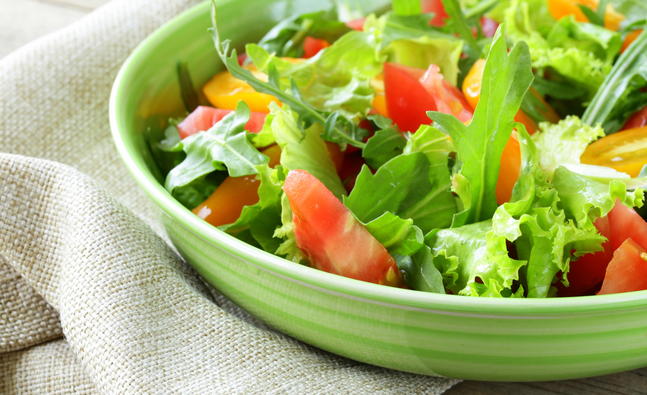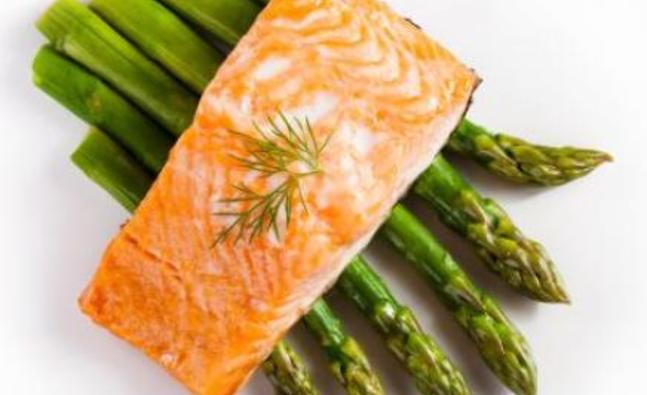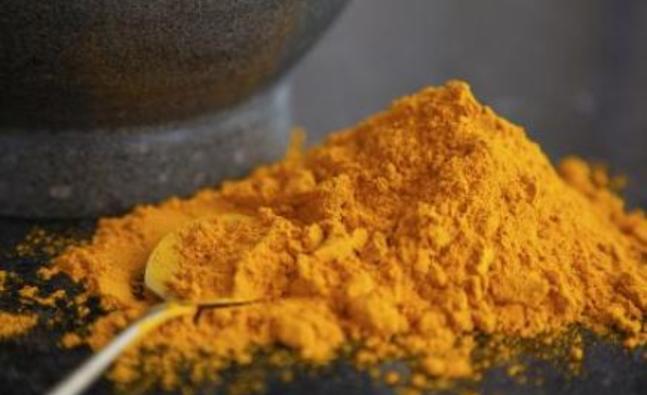7 Day Weight Loss Diet Plan For Vegetarians
A vegetarian diet is one of the healthiest approaches to weight loss. Plant-based foods such as vegetables, fruits, and whole grains are full of fiber, which keep you satiated with fewer calories and prevent weight gain. Additionally, vegetarian diet for weight loss also reduces the risk of heart diseases.
Below are some suggestions for breakfast, lunch, evening snack and dinner for a vegetarian diet plan for weight loss.
What Is Vegetarian Diet

A well-balanced vegetarian diet is apt for people of all ages. Whether it is children, elderly, pregnant women, lactating mothers, competing athletes, or even recovering patients, a vegetarian diet has all the nutrients, minerals, protein, calcium, vitamins, irons, and zinc needed by the body for its proper functioning.
Many doctors prescribe a vegetarian diet plan for the prevention and treatment of various kinds of diseases. Cardiovascular diseases, diabetes, blood pressure, cancer, renal diseases, osteoporosis, diabetes, dementia, gallstone, arthritis, etc. can be prevented with a well-balanced vegetarian diet plan.
Following a healthy vegetarian diet plan is much easier than adopting any other diet plan. A gradual change to a vegetarian diet can be a long-term move and a lifestyle change. A gradual increase of fruits and vegetables in your daily diet can help you cut down on your meat intake. You can then graduate to a completely vegetarian diet.
[Read: GM Diet Plan For Vegetarians]
Types Of Vegetarian Diet
The vegetarian diet plan can be segregated into four types:
1. Lacto-Vegetarians
The lacto-vegetarians consume dairy products but do not eat eggs. They also consume honey.
2. Ovo-Vegetarians
The ovo–vegetarians are people who consume eggs, but no dairy products. They also consume honey.
3. Lacto-ovovegetarians
The lacto-ovovegetarians are people who consume eggs, dairy, and honey.
4. Vegan
The vegans are those who do not eat any kind of dairy products from animals, or eggs or honey. They only consume plant-based foods.
7 Days Vegetarian Diet Plan For Weight Loss
Day 1

Early morning – (6 am)
Start your day early with lemon water or lemon water mixed with honey. This will help the body to get rid of harmful acids produced by the body.
1. Breakfast – (8 am)
1 poached egg, 3 slices of brown bread toast, 1 banana and 1 cup of green tea.
2. Lunch – (1 pm)
1 portion of brown rice with tofu and grilled tomatoes
3. Evening snack – (4 pm)
Egg and mayo sandwich: 2 slices of brown bread filled with slices of boiled egg, sliced tomatoes, and low-fat mayo.
4. Dinner – (8 pm)
1 portion of chickpea curry served with 2 chapattis, fresh green salad with yogurt dressing.
Day 2
1. Breakfast – (8 am)
1 bowl of corn flakes or wheat flakes topped with a handful of raisins and 125 ml of skimmed milk and 1 apple.
2. Lunch – (1 pm)
1 serving of pea and pumpkin curry, 1 cup of brown rice and salad
3. Evening snack – (4 pm)
2 slices of whole grain toast with baked beans and low fat grated cheddar cheese.
3. Dinner- (8 pm)
Vegetable stir fry with rice and salad
Day 3

1. Breakfast – (8 am)
1 bowl of unsweetened muesli with skimmed milk, a slice of multigrain bread and 1 orange
2. Lunch – (1 pm)
1 bowl of vegetable soup, 1 toasted bagel with hummus and salad.
3. Evening snack – (4 pm)
Vegetable crudités with low-fat cheese
4. Dinner – (8 pm)
1 small bowl of vegetable dalia and 1 cup of vegetable curry with 1 chapatti
Day 4
1. Breakfast – (8 am)
2 slices of whole grain bread, 2 scrambled eggs, grilled tomatoes and 1 cup of tea.
2. Lunch – (1 pm)
1 cup dal with 1 cup brown rice, 1 chapatti and 1 plate of green salad
3. Evening snack – (4 pm)
1 bowl of fruit salad and 1 cup of low-fat yogurt
4. Dinner – (8 pm)
Stuffed peppers (peppers stuffed with brown rice and vegetables) with 1 plate of upma.
Day 5
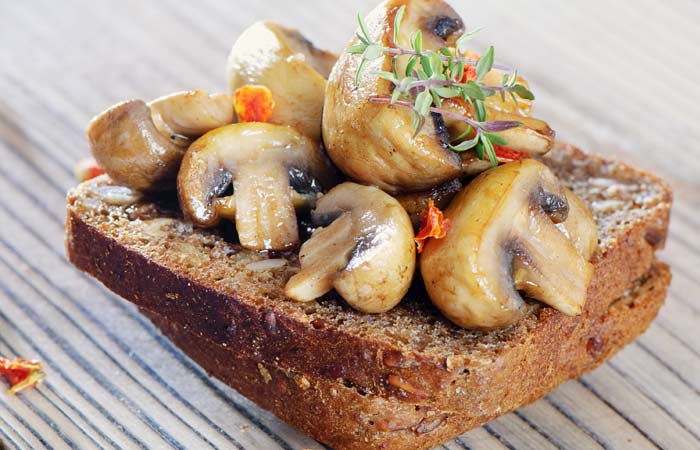
1. Breakfast – (8 am)
1 plain or masala dosa with chutney and two idlis
2. Lunch – (1 pm)
2 chapattis made with whole wheat, along with mixed vegetables and 1 bowl of green salad.
3. Evening snack – (4 pm)
1 small can of baked beans, grilled mushrooms and 3 slices of brown bread.
4. Dinner – (8 pm)
2 chapattis with 1 cup of vegetables and 1 bowl of dal
Day 6
1. Breakfast – (8 am)
1 bowl of instant porridge topped with chopped fresh fruits and 1 boiled egg.
2. Lunch – (1 pm)
1 bowl of mixed vegetable pulao, 1 cup of soy curry and lettuce salad
3. Evening snack – (4 pm)
Puffed rice with tea or coffee
4. Dinner – (8 pm)
2 chapatti, 1 cup of dal and 1 cup of paneer sabzi
Day 7
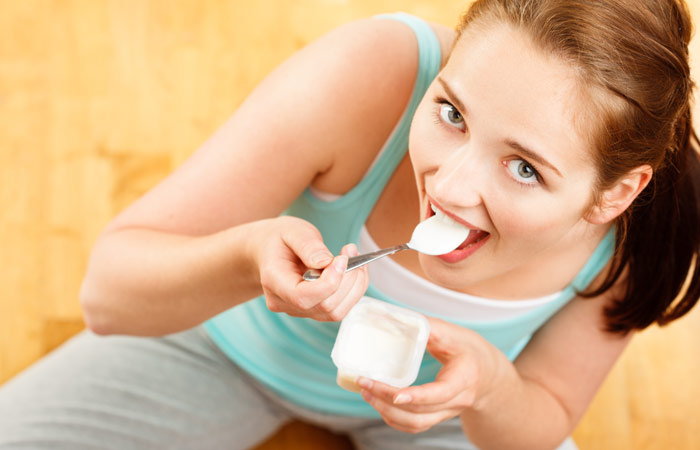
1. Breakfast – (8 am)
Muesli pancakes with a glass of grapefruit or Satsuma juice.
2. Lunch – (1 pm)
Fresh carrot and coriander soup with 2 slices of multigrain bread and 1 cup of nonfat yogurt.
3. Evening snack – (4 pm)
1 cup of sprouts with pomegranate arils and tea
4. Dinner – (8 pm)
Pumpkin, eggplant and chickpea curry with 2 chapattis.
Varied Diet
The vegetarian diet plan can be very varied. Thousands of plant-based foods make a vegetarian diet plan interesting. You can make it as interesting as your palate and calories allow. Various combinations and spices ensure that you do not get bored of the vegetarian diet plan. Vegetarian meals are satisfying too. You can choose a diet plan based on your requirements. A low-calorie diet plan to lose weight, a diet plan to recover from an ailment or disease, or a well-balanced diet plan for a healthy and fit body – choose the one that fits your requirements.
Proper Meal Planning
It is important to have a proper meal planning when on a vegetarian diet. Only then can you have a nutritionally balanced diet. Many complain that individuals miss Vitamin B12, which comes from a meat-based diet. There are supplements available that can help fortify your need for Vitamin B12.
Staples Of Vegetarian Diet
A typical well-balanced vegetarian diet is high in fiber and complex carbohydrates, and low in saturated fat. A well-balanced vegetarian diet should include:
1. Fruits And Vegetables
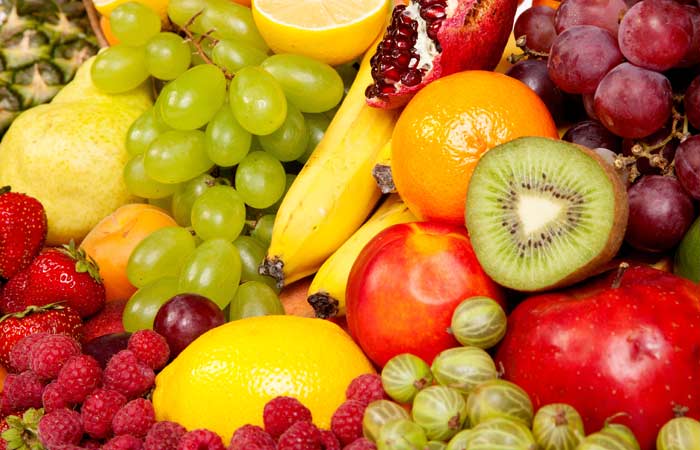
You can have all kinds of fruits and vegetables in your diet. Five servings of fruits and vegetables is the recommended daily dose for an individual on a best vegetarian diet plan. These vegetables and fruits have all kinds of minerals and nutrients required by the body.
You can eat them raw, cooked or as juice to suit your palate. They are a rich source of fiber. They have a good quantity of antioxidants. These are effective for weight loss as they have fewer calories in them. For greater weight loss, it is best to opt for fruits and vegetables rich in water content.
You need to eat a variety of vegetables and fruits to obtain all the necessary nutrients and minerals required by the body. A dietitian would tell you to eat across the rainbow, i.e., you need to eat vegetables and fruits in all colors. This way you can obtain optimum nutrients from these plant-based foods.
2. Grain And Cereals
You can include whole grains, cereals, brown rice, muesli, oats, barley, etc. You can eat bread, pasta, and plenty of foods made from these whole grains and cereals. They are highly nutritious and have good quantities of zinc and iron.
3. Legumes, Nuts, And Seeds
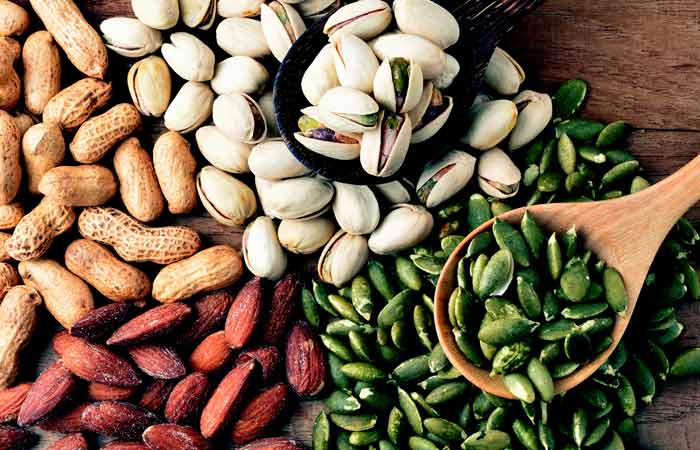
There are various kinds of legumes, nuts and seeds that you can add to your diet. Products like kidney beans, soya beans, lentils, chickpeas, split peas, almonds, walnuts, flax seeds, sesame seeds, peanuts, etc. are good sources of iron, carbohydrates, fatty acids and healthy fats. They help to reduce cholesterol and keep our heart healthy. They also contain good amounts of omega -3 fatty acids.
4. Diary And Soya Products
Milk, cheese, yogurt are sources of minerals and vitamins that can be included in your diet. These are rich sources of calcium and protein for the body. Various fat-free and reduced calorie options are available in the market.
5. Fat
Fat is an important ingredient required by the body. Fat helps the joints to be lubricated and makes movements easier. You need to have unsaturated fats, which can be found in nuts, avocados, and certain other foods. This can actually be highly beneficial for good health. You can avoid saturated fat that is usually available in the form of animal meat. Saturated fat is bad for the body.
Benefits Of A Vegetarian Meal
1. Low On Calories
Plant-based food is low in calories as compared to meat. Meat makes up a larger portion of the meal. The vegetarian portions are smaller as the stomach gets full faster in a vegetarian diet. This, in turn, leads to consumption of less food, which means less calorie intake.
2. Fewer Diseases
People on a vegetarian diet have lower incidences of diseases. Blood pressure, diabetes, cardiovascular diseases, cancer, strokes, etc. are more common in people who eat meat.
3. Less Body Mass
Individuals on a vegetarian diet have low body mass, and as they grow older, they tend to put on less body weight compared to meat eaters.
4. Better Cholesterol Level
It has been noted that people on a vegetarian diet have a better cholesterol level. People suffering from heart diseases had lower LDL level when they switched to a vegetarian diet. LDL is the main cause behind the clogging of arteries in people.
5. Lower Risk Of Cancer
Studies have proven that individuals on a vegetarian diet have lower risks of developing cancer when compared to meat eaters.
6. Live Longer
People on a vegetarian diet tend to live longer than those on a non-vegetarian diet. They are less prone to chronic diseases and obesity.
7. Boosts Metabolism
A vegetarian diet plan is high in fiber and complex carbohydrates, which helps boost the metabolism. This, in turn, helps you to burn more calories. This way, you are able to maintain a healthy weight.
8. Higher Energy
People on a vegetarian diet have higher energy levels when compared to individuals on a meat-inclusive diet. They are also generally more active than others.
9. Healthy Skin

Nuts, vitamins, and other nutrients from vegetables and fruits play a huge role in endowing a person with healthy skin. You will notice that individuals on a vegetarian diet usually have good glowing skin with few blemishes.
10. Reduces Body Odor
People who eat meat generally tend to have a body odor. In hot and humid weather, people would not like to stand next to you. Individuals on a vegetarian diet have reduced body odor.
11. Healthy Nails

People who are on vegetarian diets have healthy nails. This is an indicator of general good health. Their nails are much stronger.
12. Bad Breath
Vegetarian dieters have a low incidence of bad breath. With this diet, you will have no problem standing close to a friend and talking.
13. Healthier Hair

If you want longer, thicker and healthier hair, switch to a vegetarian diet. Many studies have shown that a vegetarian diet is good for the health of the hair.
14. Lesser Allergies
People not eating meat and other animal products exhibit fewer allergies and its symptoms. They have fewer chances of congestion and runny noses.
15. Fewer Cataract Incidences
Much of the macular degeneration is headed off by a vegan diet. Cataracts can be prevented through the intake of fruits and vegetables. Produce high in antioxidants are also believed to help prevent cataracts. These fruits and vegetables are high in nutrients and minerals that are good for the eyesight.
16. Osteoporosis
Bone health depends on a balance of neither too much nor too little. It requires an adequate intake of calcium, protein, high potassium, and low sodium. With a healthy vegan diet, these can be set to a perfect balance. This helps to prevent osteoporosis, making the bones stronger.
17. Arthritis
Reducing dairy consumption has long been connected with easing arthritis symptoms. A new study points out that a blend of gluten-free and vegan diet is good for improving the physical condition of those suffering from rheumatoid arthritis.
18. PMS

Women who have switched to a vegetarian diet have experienced their PMS symptoms becoming less severe or disappearing altogether. The removal of dairy is considered to help with those suffering from PMS. No cramps or bloating is experienced by such women on a vegan diet.
19. Diabetes Reduction
There is a reduction in cases of diabetes in individuals on a vegetarian diet.
20. Immunity
A vegetarian diet boosts the immunity of an individual. They are less likely to fall sick or contract bacterial infections.
If you are a hardcore meat eater and want to switch to a vegetarian diet, it is always better to seek the advice of a doctor first. He can guide you to make a lifestyle change in a suitable way. It is much easier to switch to a vegetarian diet. There may be initial hiccups of constipation or irritable bowels. The doctor can guide you well into this healthier diet. Following a vegetarian diet helps one to stay fitter and disease-free for life. It also helps one to live a longer life. A plant-based diet is not only good for your body, but is environment-friendly too.
Tips For Vegetarian Weight Loss Diet Plan
A balanced vegetarian diet is a must for a healthy weight loss. A balanced vegetarian diet is based on the MyPlate plan. The plan ensures that you get the right proportion of nutrients without consuming meat, fish or their derivatives. You should consume five portions of fruits, vegetables, and fiber-rich food like potato, whole grains, cereals pasta, bread, and rice. You should also include dairy products like milk, curd, paneer, and cheese.
- The best way to lose weight is by reducing calories. Increase the amount of calories you burn through exercise. Exercise for 20 to 30 minutes daily to boost the metabolism and burn fat. You can take up high-intensity exercises like aerobics, swimming, and cardiovascular exercises to burn calories faster.
- Breakfast is the most important meal of the day. Consume a protein and fiber rich breakfast to stay full for a longer time.
- Drink 2 liters of water every day. Water aids in digestion and flushes out the harmful toxins and metal from the body. Replace your cold drink and alcohol with fresh fruit juice, water, buttermilk, and coconut water.
- Reduce your oil, sugar and salt consumption. Two tablespoons of refined or olive oil per day are sufficient. Avoid consuming butter, margarine and ghee in high quantities.
- Processed and junk foods like chips, cookies, biscuits and instant noodles must be avoided. Highly processed foods are low in nutrients, which can lead to overeating.
- Fiber rich foods are excellent in weight loss management. Include fiber rich foods like cereals, whole grains, oats, vegetables and fruits in your diet. Fiber is required to maintain bowel movements and prevent constipation. It will also keep you full for a longer period.
- Include antioxidant-rich foods in your diet. Brightly colored vegetables and fruits like carrot, beetroot and spinach are rich in biotin, a potent antioxidant. High levels of antioxidants in the body will improve immunity, protecting from several diseases.
This vegetarian weight loss diet plan will not only give you the energy to carry on with the day to day activities, but will also provide resistance from health problems. Please note that this is a generalized concept. Consult a dietician or nutritionist for a customized weight loss plan.
Expert’s Answers for Readers’ Questions
Do vegetarians get enough protein?
Being a vegetarian works in favor of good health and metabolism. Though chicken and eggs are a rich source of protein, they are not the only ones. Vegetarians can cover their daily requirement of protein with different grains and legumes. Research says that an entire daily meal need not be proteinbased. As long as your body gets its quota of 55 grams of complete protein every day, you are good. Lentils, chickpeas, black beans, nuts, tofu, and quinoa are some of the richest sources of protein in a vegetarian diet. They are easy to digest and have the right balance of amino acids that your body needs.
Is the vegetarian diet the healthiest way to eat?
There is no doubt that a wellbalanced vegetarian diet is the healthiest way to eat. The reason is simple: it’s easy to digest and boosts your metabolism. Veg diet has all the necessary components like calcium, minerals, protein, and vitamin required for the healthy functioning of your system. A wholesome vegetarian diet will keep you away from diseases and deficiencies. It balances your cholesterol levels, gets you high on energy, and keeps digestion disorders at bay. The life span of a vegetarian is said to be higher than that of a nonvegetarian. Thus, doctors often prescribe a vegetarian lifestyle for various treatments.
What’s so good about a vegetarian diet?
Everything is good about a vegetarian diet. It is a wholesome balanced diet that gets digested easily and boosts metabolism. A vegetarian diet is often a handsdown solution to chronic disorders, obesity, allergies, blood pressure, and skin diseases. It lowers the risk of cancer and helps women with hormonal imbalances. People who opt for a vegetarian diet have higher energy and are less prone to diseases that originate from being overweight. Vegetarians are also calmer and live a longer, healthier life when compared to nonvegetarians. Consuming nutritious, fibrous, and antioxidantsrich meals is the best way to achieve good health.
Are vegetarians really healthier in the long run?
Vegetarians are healthier than nonvegetarian in the long run. A wholesome vegetarian meal comprises of all the necessary components required for a healthy body and mind. Vegan foods have the right balance of vitamins, minerals, calcium, zinc, protein, carbs, and iron, all of which boost metabolism and keeps the digestive system in order. When calorie consumption is less, obesity and other chronic disorders are taken care of. Vegetarians are high on energy and less prone to common ailments like diabetes and high blood pressure. With a fit, diseasefree, and energetic body, vegetarians are any day healthier and happier.
Can vegetarian diets lead to some nutritional deficiencies?
If a vegetarian diet is not balanced and fails to fulfill the necessary nutritional requirements, it could lead to various deficiencies. Studies have shown that many vegetarians end up with protein deficiencies and lack longchain fatty acids and vitamin A, D, and B12. Lack of nutrition can also lead to calcium, iron, and zinc deficiencies. But that does not make the vegetarian diet the culprit. It’s the wrong food choices. A wholesome vegetarian meal can never go wrong. Including fiberrich and antioxidantrich foods in your meal, getting your complete dose of nutrition, and thinking before eating are deficiencies at bay.
-
Reduce cravings with meditation
-
5 Really good reasons to eat fewer animal products
-
Exercise tips for weight loss: The MOST important thing is…
-
5 Foods that could help you lose weight
-
Do I Actually Weigh More When Im Bloated?
The question: Gas and water retention can make you feel like youve gai
-
Downsize your food choices and your weight
- DON'T MISS
- Choose sorbet over ice cream
- Why broccoli is so good for you
- Lose weight by eating more vegetables
- A winning weight-loss combo
- Exercise tips for weight loss: Can one learn to enjoy running?
- Weight loss begins at home!
- Smoothies can be high in calories
- Exercise tips for weight loss: Dont get hurt!
- Seasonal Supercharge: 5 Ways to Kickstart Serious Weight Loss This Fall
- Fatty Foods for Weight Loss
